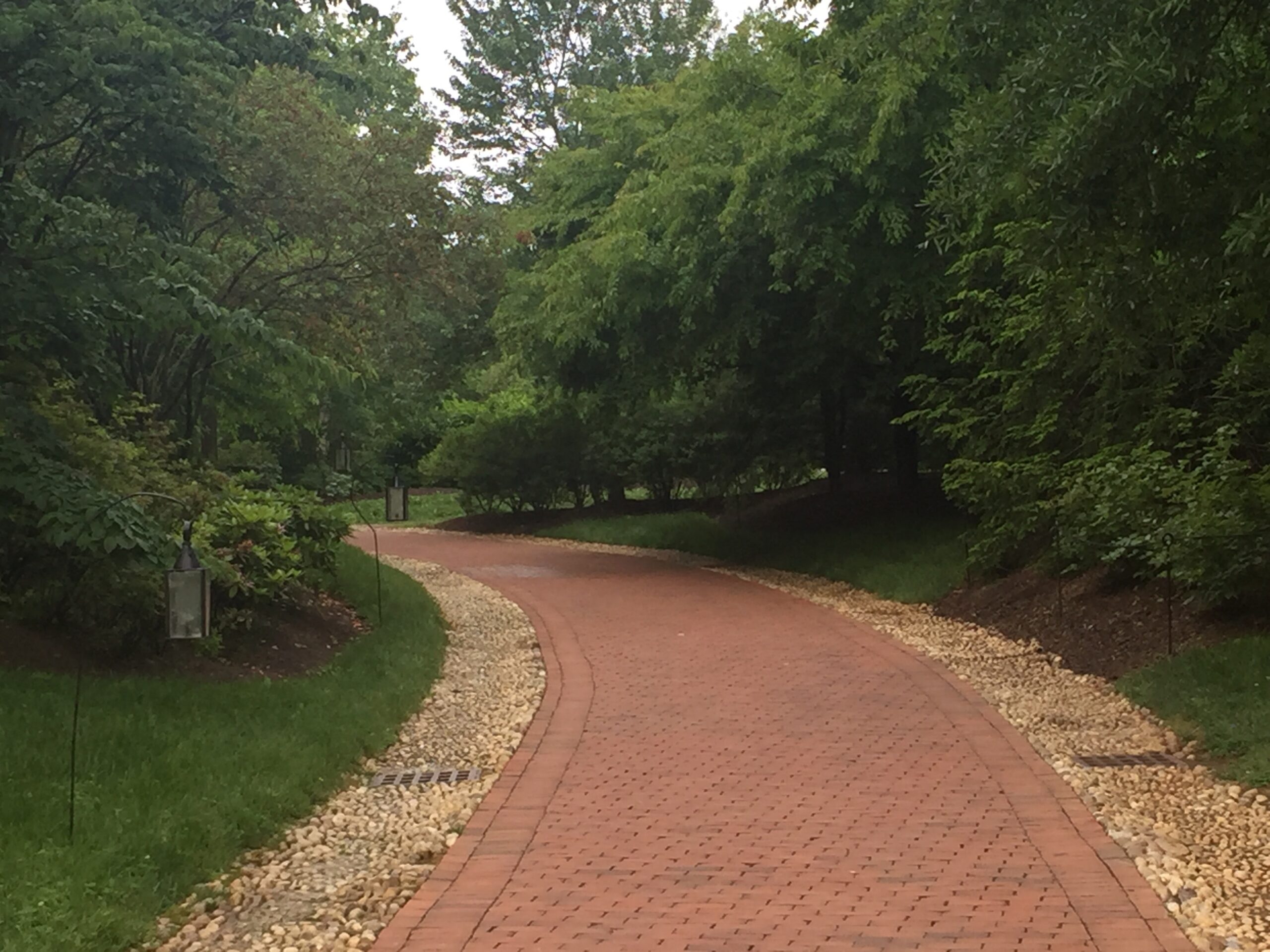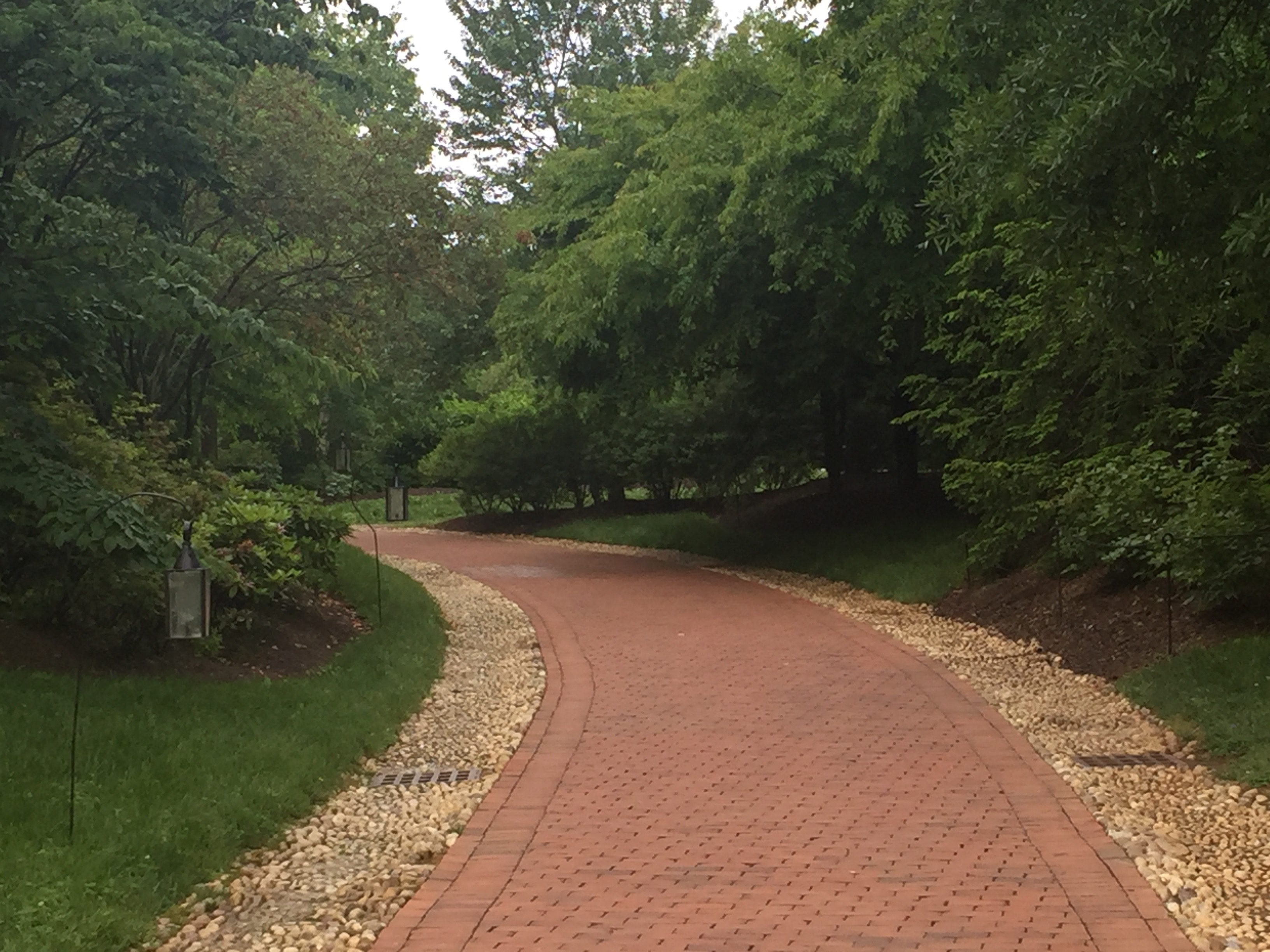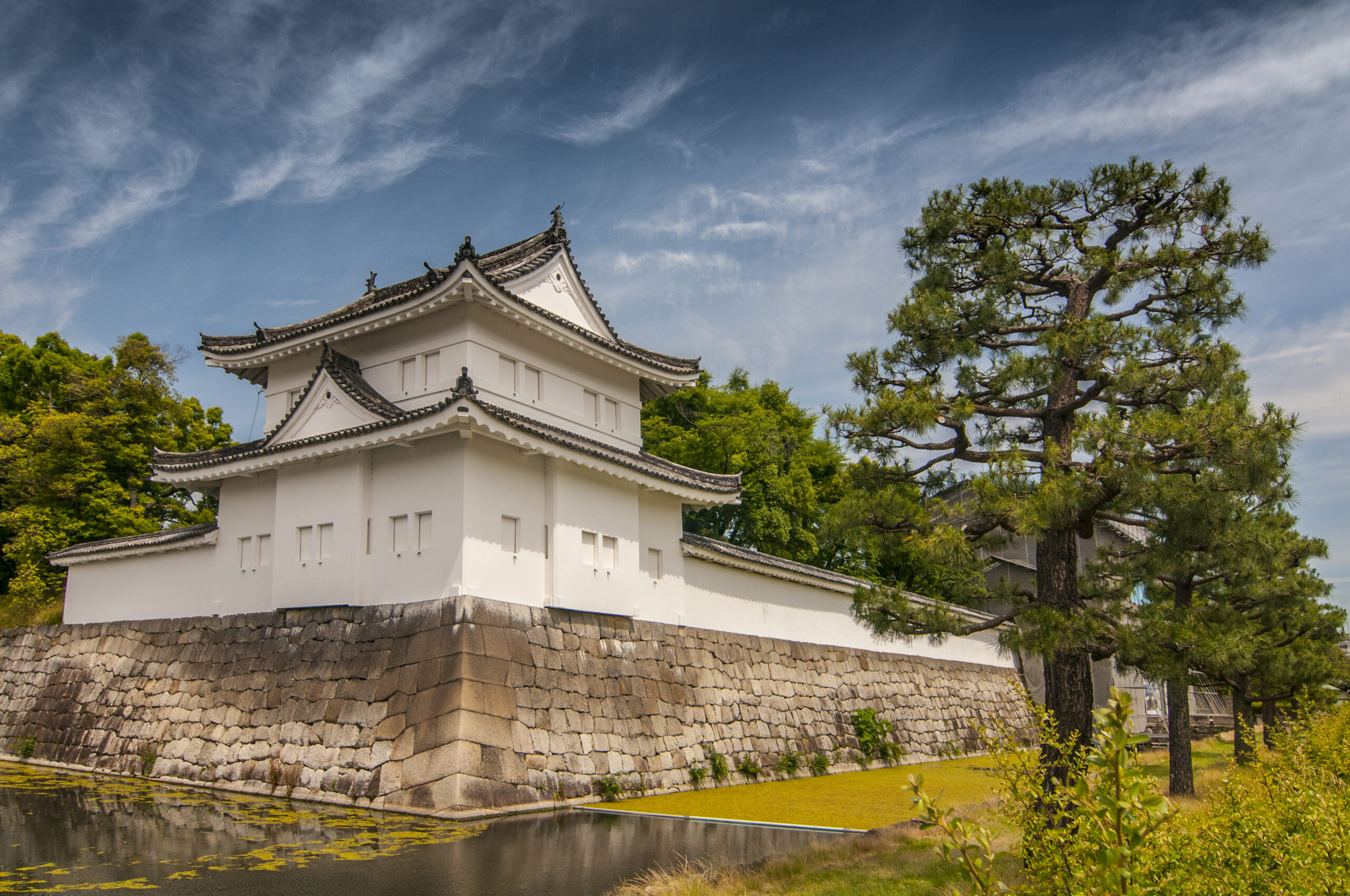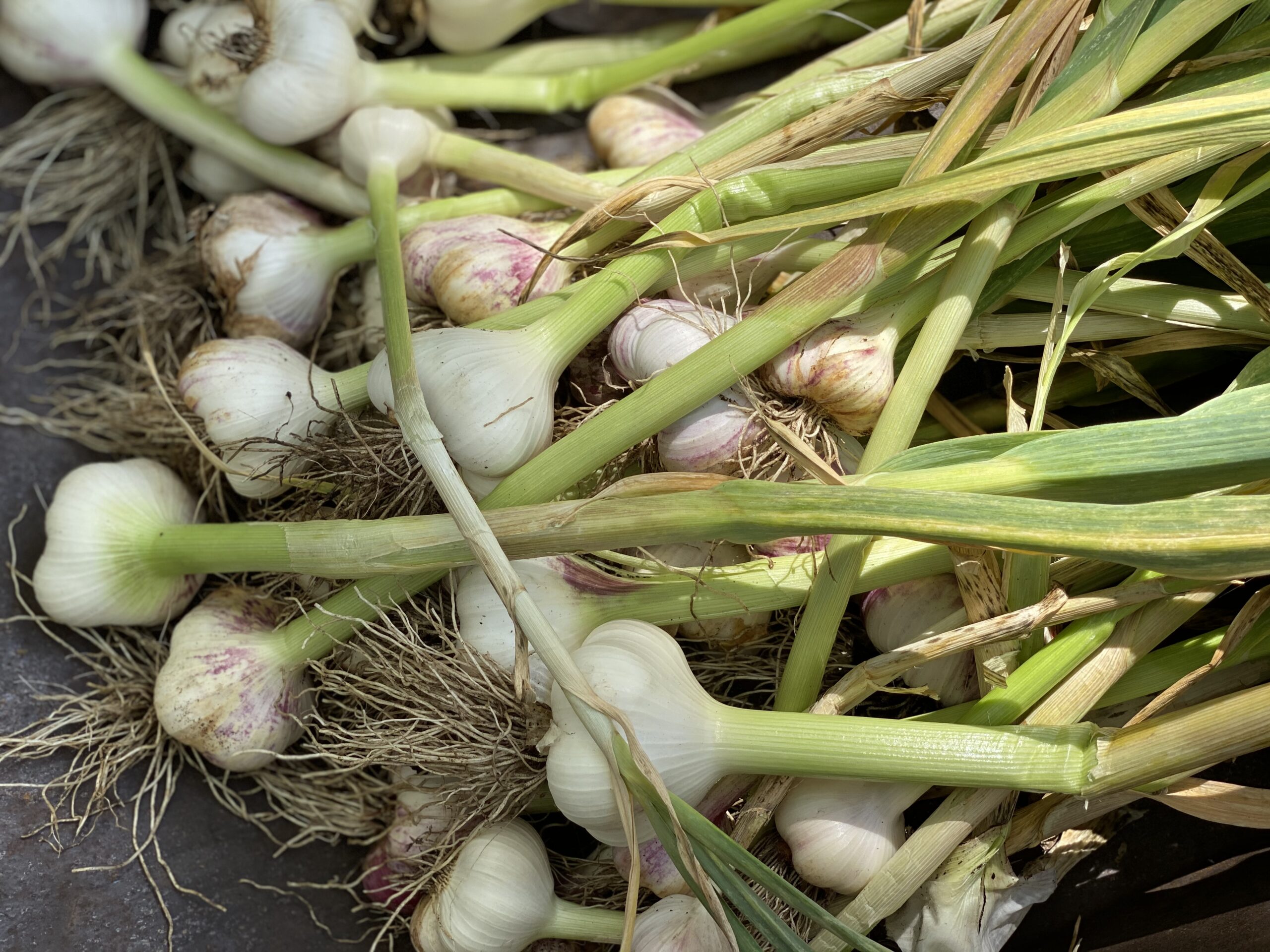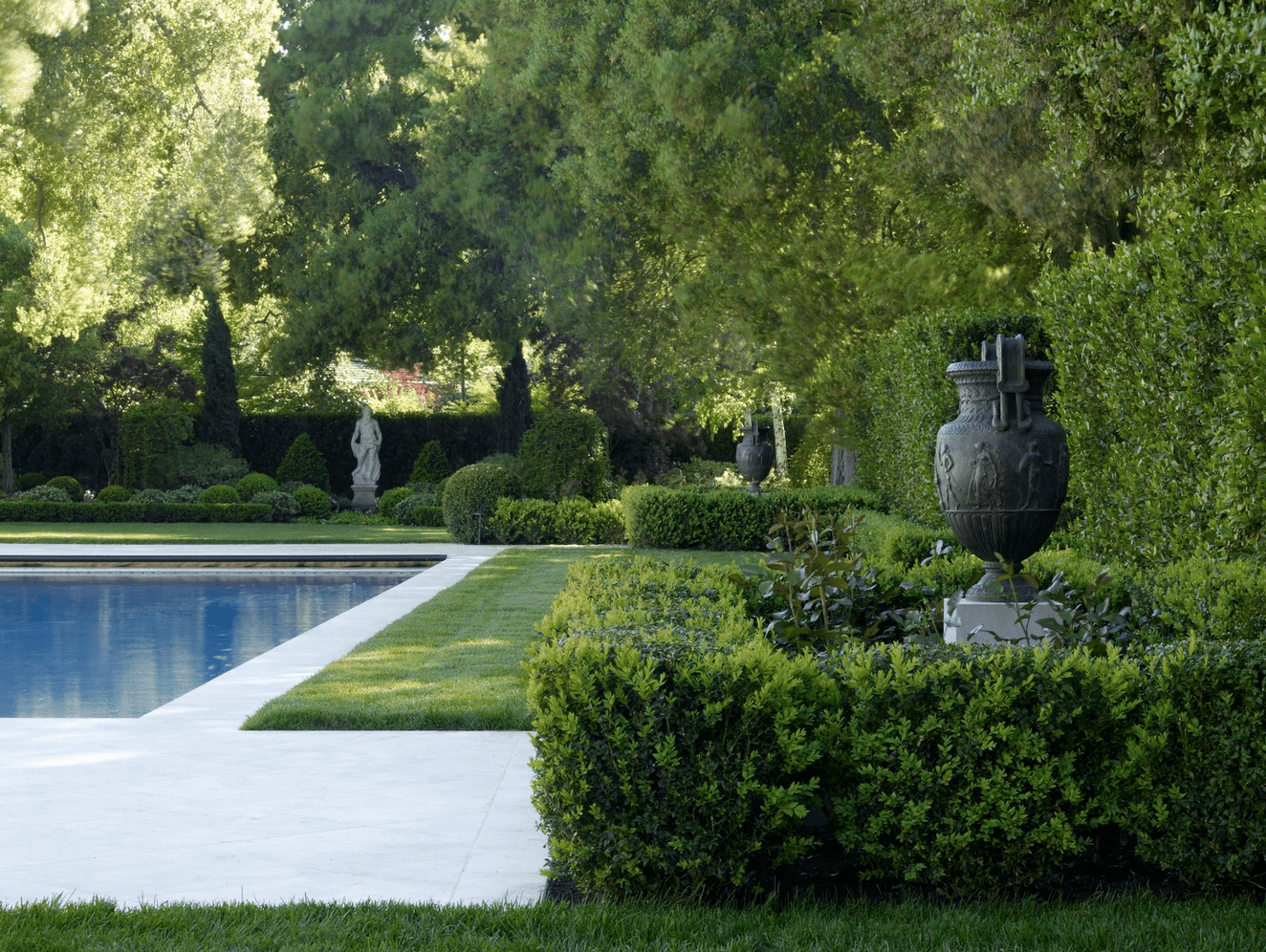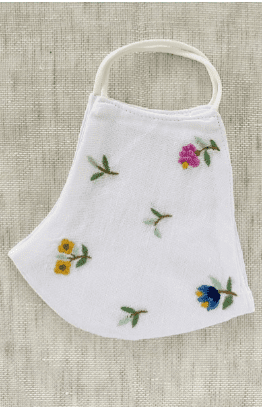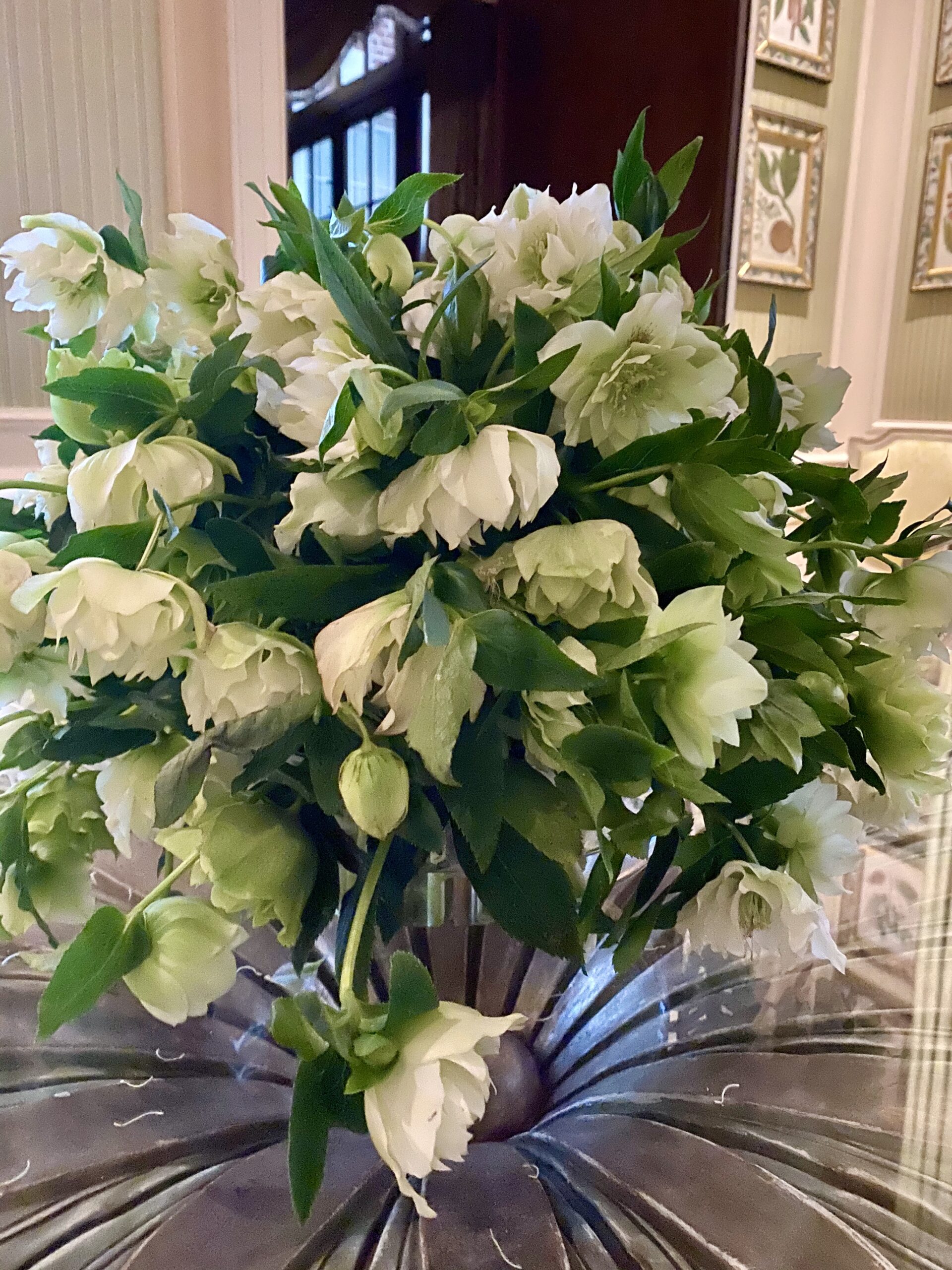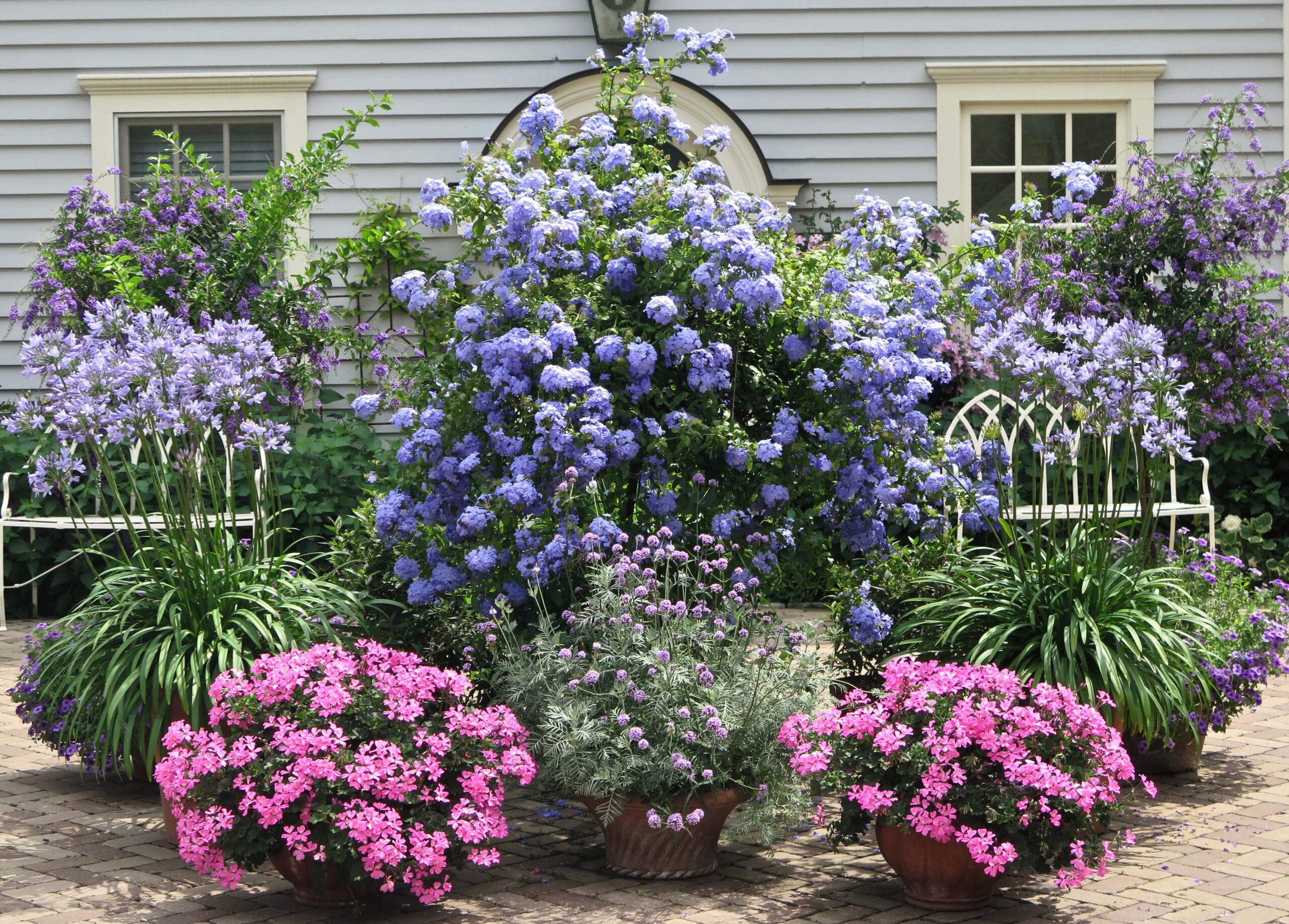I had a chance to see Mount Vernon this morning. As you well know, Mount Vernon was George Washington’s plantation home located on the Potomac River in Fairfax County, Virginia – and what a spectacular site for his property! I learned that a smaller version of this property had been in his family since 1674 but the family began expanding it in 1739, with George Washington taking sole ownership of Mount Vernon in 1761. George was the overseer, designer and re-designer of the landscape at Mount Vernon, planting hundreds of native trees and shrubs in a naturalistic style of English landscape designer Batty Langley.
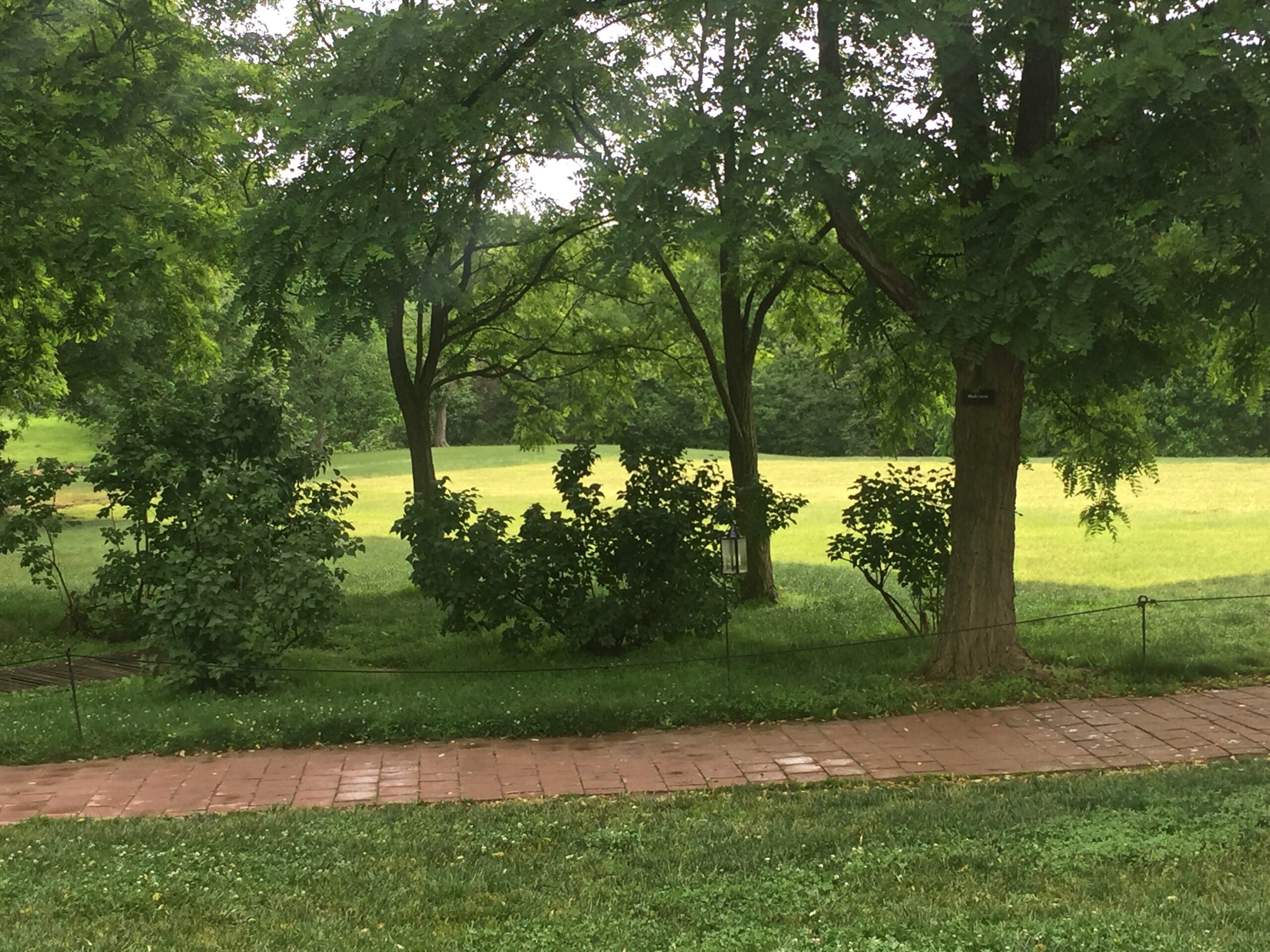

There were four different garden areas that I saw today: the fruit garden and nursery, the vegetable garden, the botanical garden and the upper garden.
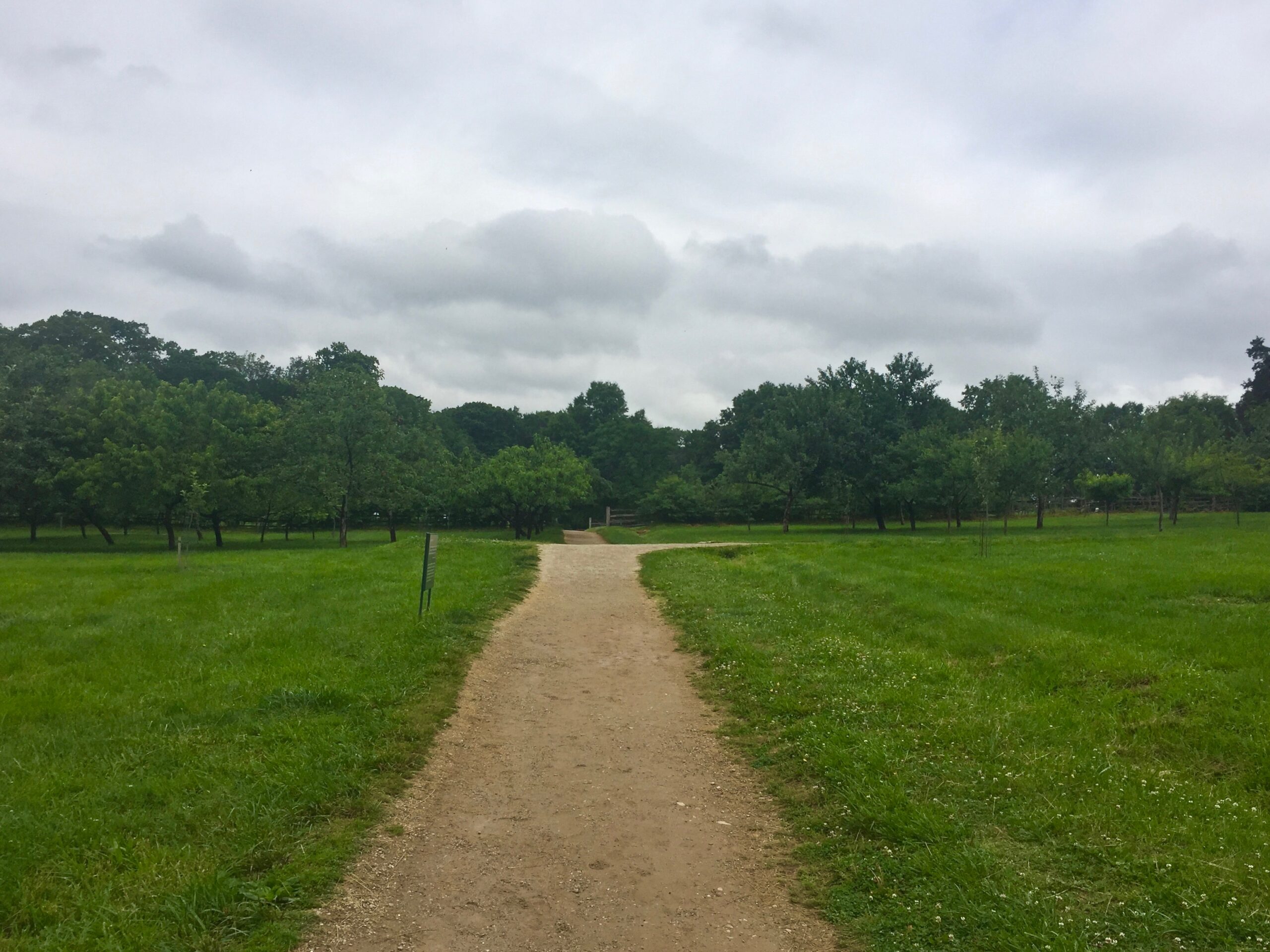

The Fruit Garden and Nursery
I loved the entrance to the walled fruit garden with an inviting dirt pathway from two different locations and wild green grasses on either side. The fruit garden and nursery was originally devoted to an orchard that produced apples, cherries, peaches and other fruits needed in the kitchen. Hedging material, boxwood and trees were also propagated in this garden until they were mature enough to be transplanted to another area of the property.
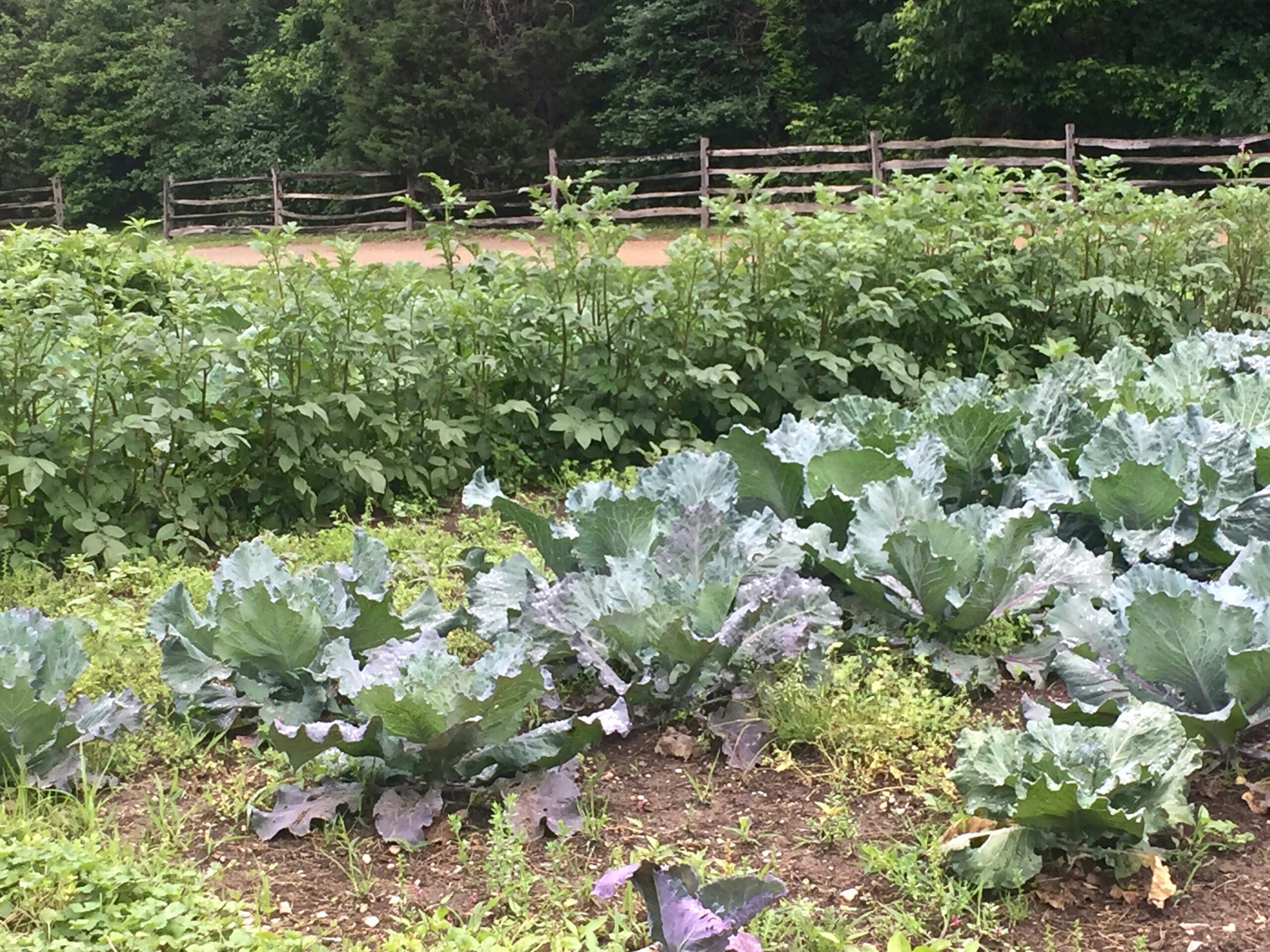

The Kitchen Garden
The vegetable garden is a modern day interpretation of what the garden would have looked like during George Washington’s day, recreated in the 1990s. The site where the garden is situated today was often flooded by the Potomac during his day, so it wouldn’t have been located in the same place. Martha Washington was known to have said that “vegetables were the best part of living in the country.” George Washington encouraged his troops to eat plenty of vegetables and plant them whenever they had the time. One of his agricultural contributions was his study and documentation of crop rotation and increasing the European’s practice of rotating crops every 3 years to every 7 years.
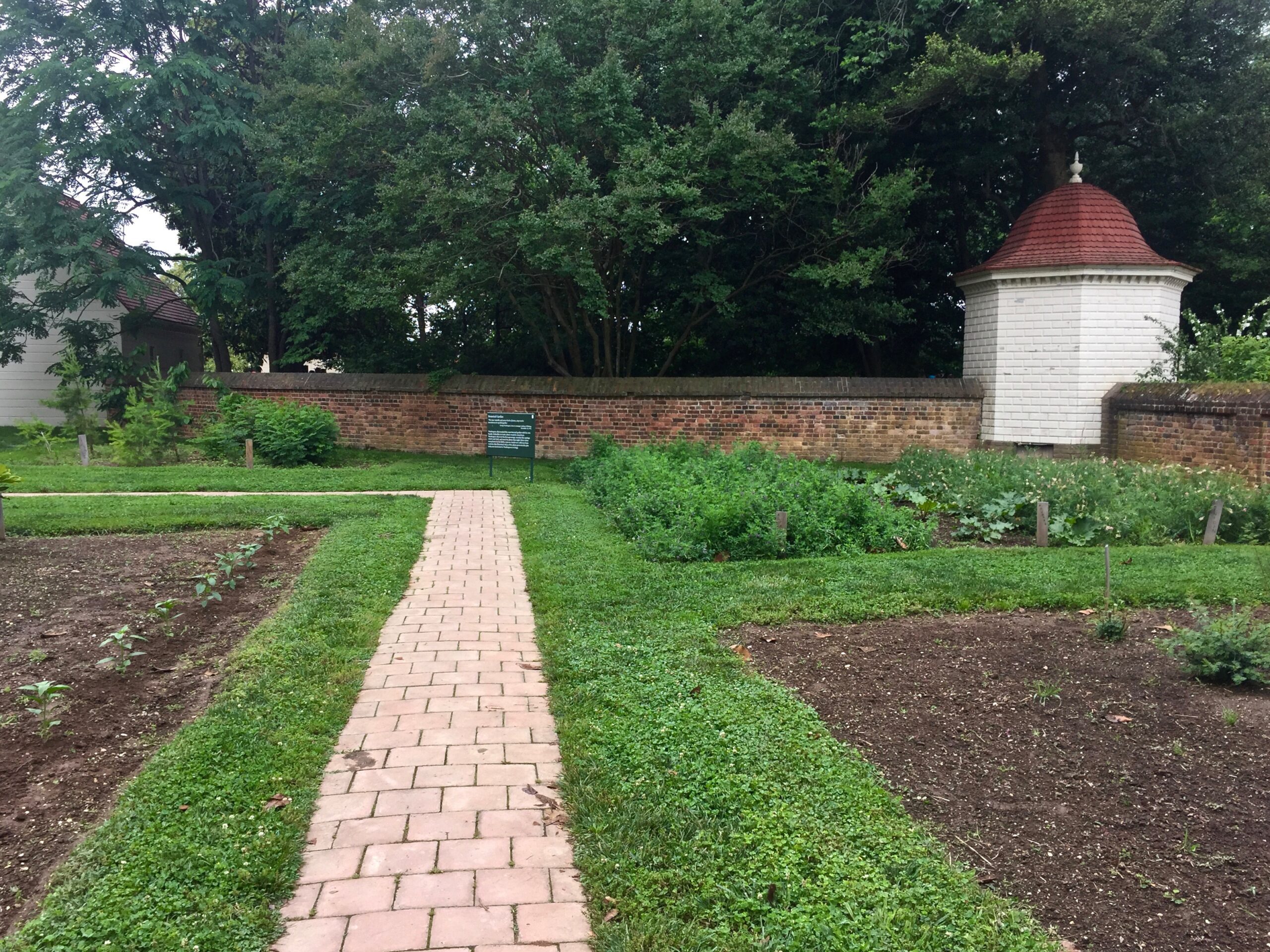

The Botanical Garden
George Washington affectionately referred to this garden as “his little garden”, which he is known to have tended himself. This garden contained seeds, nuts and seedlings that he found from other places as well as gifts from friends, which he tested for their suitability to survive Virginia’s harsh climate. He kept meticulous records about which plants were successful and which ones were not, which still exist today.
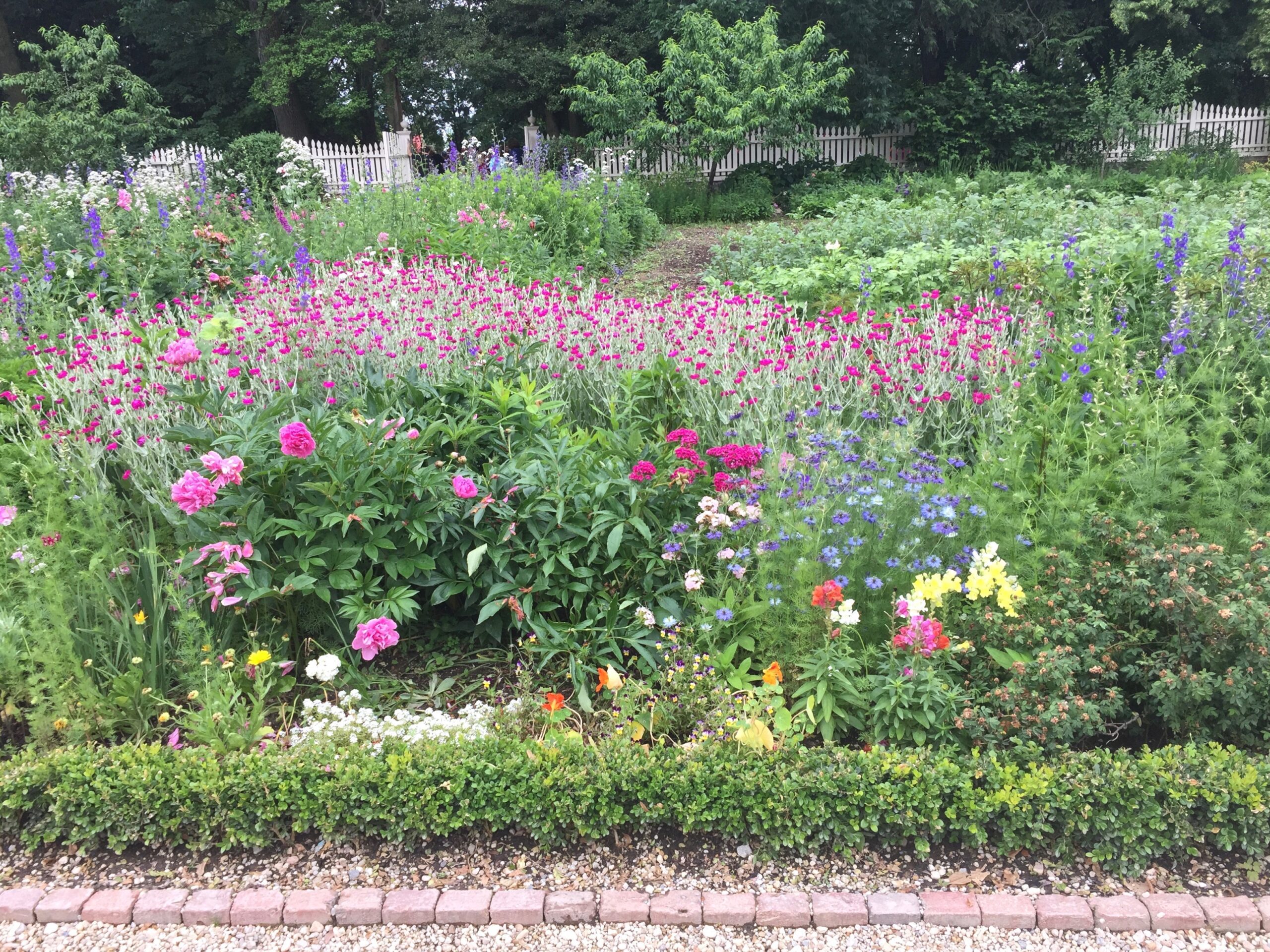

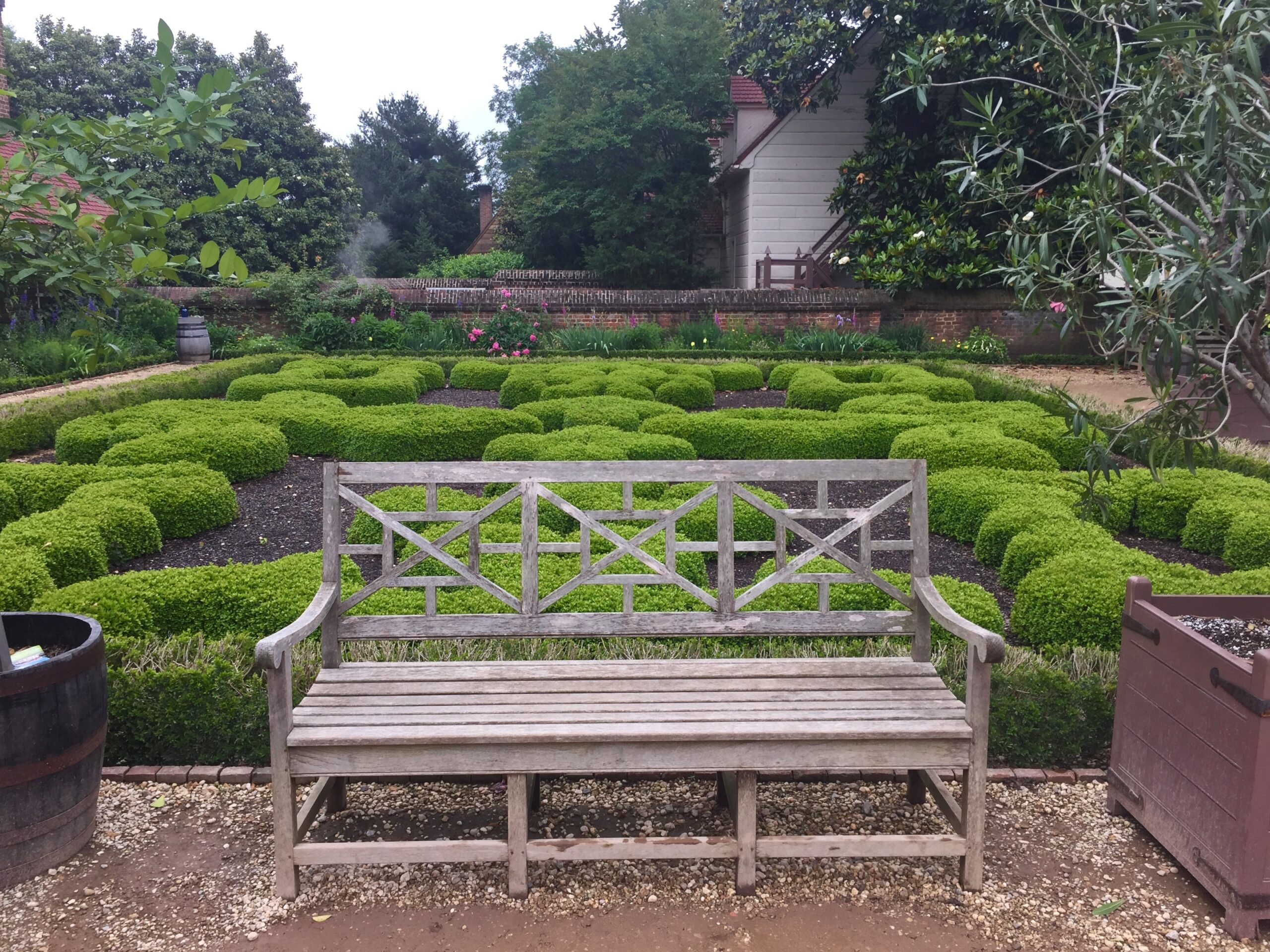

The Upper Garden
This garden is the most highly cultivated of all of his gardens, containing a wide variety of beautiful flowers, which were in full bloom this morning, enclosed by lush boxwood hedges. In the center of the three main planting beds would have been rows of vegetables and fruit trees in George Washington’s day. Today, there were potted lemon trees marking the corners of these structured beds. I took a moment to take it all in on this bench, with the gorgeous boxwood parterre behind me, containing a French fleur-de-lys in the center. I was lucky enough to be in this garden with very few visitors this morning, imagining the calm that George and Martha must have enjoyed from this very place, so many years ago.
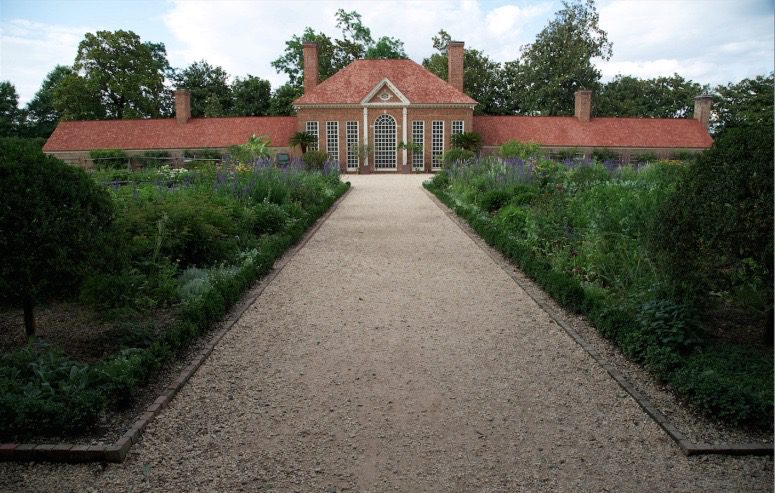

Greenhouse
George Washington built a greenhouse adjacent to his Upper Garden for rare and exotic plants. In the springtime, he moved the plants out into the Upper Garden for all to enjoy. One guest wrote in 1799, “I saw there English grapes, oranges, limes and lemons in great perfection as well as a great variety of plants and flowers, wonderful in appearance, exquisite in their perfume and delightful to the eye…”. What was interesting about this particular greenhouse was that the slaves’ quarters were on the backside of the greenhouse – a stark reminder of what made all of these gardens and grounds possible in George Washington’s time at Mount Vernon.
In addition to the beautiful gardens, I thoroughly enjoyed walking on all of the forested paths with gorgeous trees, beautiful boxwood (some of which were said to be original cuttings from Robert E. Lee’s father), pretty stone and brick work, charming fences and beautiful vistas.
What a beautiful morning – and all within 35 minutes of Washington DC! Yet, it feels like a world away…

